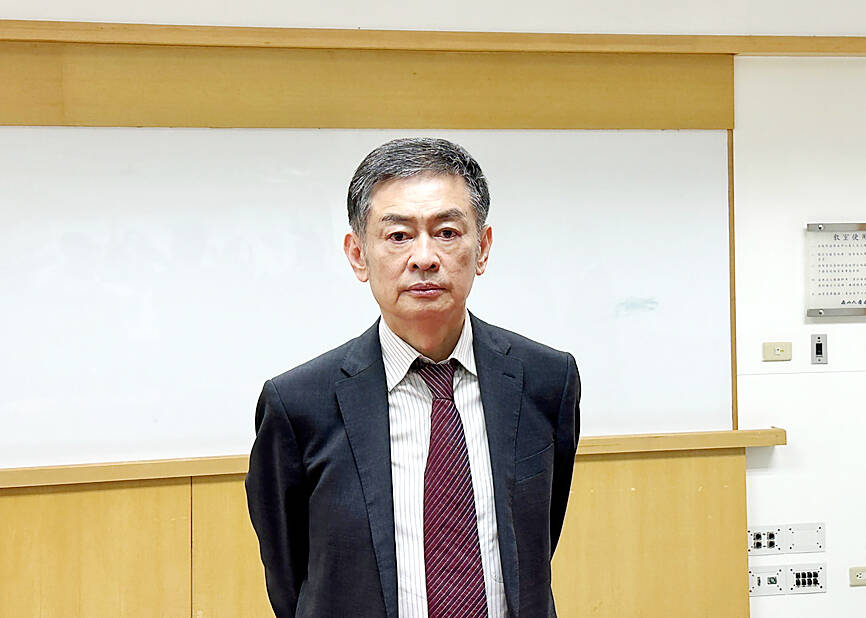Largan Precision Co (大立光), a major camera lens supplier for Apple Inc’s iPhones, yesterday posted 21.7 percent annual growth in net profit for last quarter and said it expects factories to be fully utilized in the second half of the year, given demand for increasingly complex manufacturing processes.
Net profit rose to NT$4.5 billion (US$138.4 million) last quarter, compared with NT$3.7 billion in the second quarter of last year. However, on a quarterly basis, net profit plummeted 26.35 percent from NT$6.11 billion. That brought first-half net profits to NT$10.61 billion, up 51.79 percent from a year ago.
Earnings per share jumped to NT$79.49 from NT$52.33 in the same period last year.

Photo: CNA
Largan said most of its factories would run at full capacity in the third and fourth quarters, as it has to boost inventories for customers.
Revenue would grow sequentially this month and next month, Largan CEO Adam Lin (林恩平) told an online investors’ conference yesterday.
However, visibility for September is vague, he said, but added that yields should improve further.
That would set the scene for Largan to see a pickup in gross margin this quarter, from 48.41 percent last quarter, the lowest in the past three quarters, as utilization, yields and product mix are deciding factors.
However, Largan said it remained conservative about the sales outlook for smartphones in the second half.
The issue would be more on end consumers’ willingness to spend on phones, as phone makers have learned to manage inventory prudently, Lin said.
“Nobody feels optimistic. Most cellphone brand names do not expect sales to be strong. Customers are not hopeful about good sales,” Lin said. “They anticipate smartphones with artificial intelligence [AI] features might sell better. But that is just their anticipation.”
Some customers are slowing down equipping new phones with AI features, as component costs are inflated, he said, adding that customers are reluctant to upgrade camera lenses.
Most customers are upgrading camera lenses to adopt eight pieces of plastic lenses and very few have adopted hybrid lenses, which are plastic and glass lenses together, Lin said.
Additionally, clamshell phones tend to use fewer lenses, but those lenses are usually thinner and require a higher technology threshold, Lin said, implying that those camera lenses deliver better average selling prices and gross margin.
Asked if Largan has secured long-term supply agreements with its key customers, Lin said: “It is nothing special. We usually discuss with customers about the volume for next year in order to prepare our capacity, since most of Largan’s products are customized.”
Speculation swirled on Wednesday that Largan had landed a long-term agreement with Apple due to its strong intellectual property portfolio.
It is very rare for Apple to sign long-term supply contracts with its component suppliers.
Asked about capacity expansion, Largan said it plans to move in new equipment to a new factory this quarter, which would quickly be fully utilized in the fourth quarter. The company is planning to build another new factory with twice the floor size of the last one.
The new fab would be ready in the third quarter next year, Lin said.

DIVIDED VIEWS: Although the Fed agreed on holding rates steady, some officials see no rate cuts for this year, while 10 policymakers foresee two or more cuts There are a lot of unknowns about the outlook for the economy and interest rates, but US Federal Reserve Chair Jerome Powell signaled at least one thing seems certain: Higher prices are coming. Fed policymakers voted unanimously to hold interest rates steady at a range of 4.25 percent to 4.50 percent for a fourth straight meeting on Wednesday, as they await clarity on whether tariffs would leave a one-time or more lasting mark on inflation. Powell said it is still unclear how much of the bill would fall on the shoulders of consumers, but he expects to learn more about tariffs

NOT JUSTIFIED: The bank’s governor said there would only be a rate cut if inflation falls below 1.5% and economic conditions deteriorate, which have not been detected The central bank yesterday kept its key interest rates unchanged for a fifth consecutive quarter, aligning with market expectations, while slightly lowering its inflation outlook amid signs of cooling price pressures. The move came after the US Federal Reserve held rates steady overnight, despite pressure from US President Donald Trump to cut borrowing costs. Central bank board members unanimously voted to maintain the discount rate at 2 percent, the secured loan rate at 2.375 percent and the overnight lending rate at 4.25 percent. “We consider the policy decision appropriate, although it suggests tightening leaning after factoring in slackening inflation and stable GDP growth,”

Greek tourism student Katerina quit within a month of starting work at a five-star hotel in Halkidiki, one of the country’s top destinations, because she said conditions were so dire. Beyond the bad pay, the 22-year-old said that her working and living conditions were “miserable and unacceptable.” Millions holiday in Greece every year, but its vital tourism industry is finding it harder and harder to recruit Greeks to look after them. “I was asked to work in any department of the hotel where there was a need, from service to cleaning,” said Katerina, a tourism and marketing student, who would

i Gasoline and diesel prices at fuel stations are this week to rise NT$0.1 per liter, as tensions in the Middle East pushed crude oil prices higher last week, CPC Corp, Taiwan (台灣中油) and Formosa Petrochemical Corp (台塑石化) said yesterday. International crude oil prices last week rose for the third consecutive week due to an escalating conflict between Israel and Iran, as the market is concerned that the situation in the Middle East might affect crude oil supply, CPC and Formosa said in separate statements. Front-month Brent crude oil futures — the international oil benchmark — rose 3.75 percent to settle at US$77.01